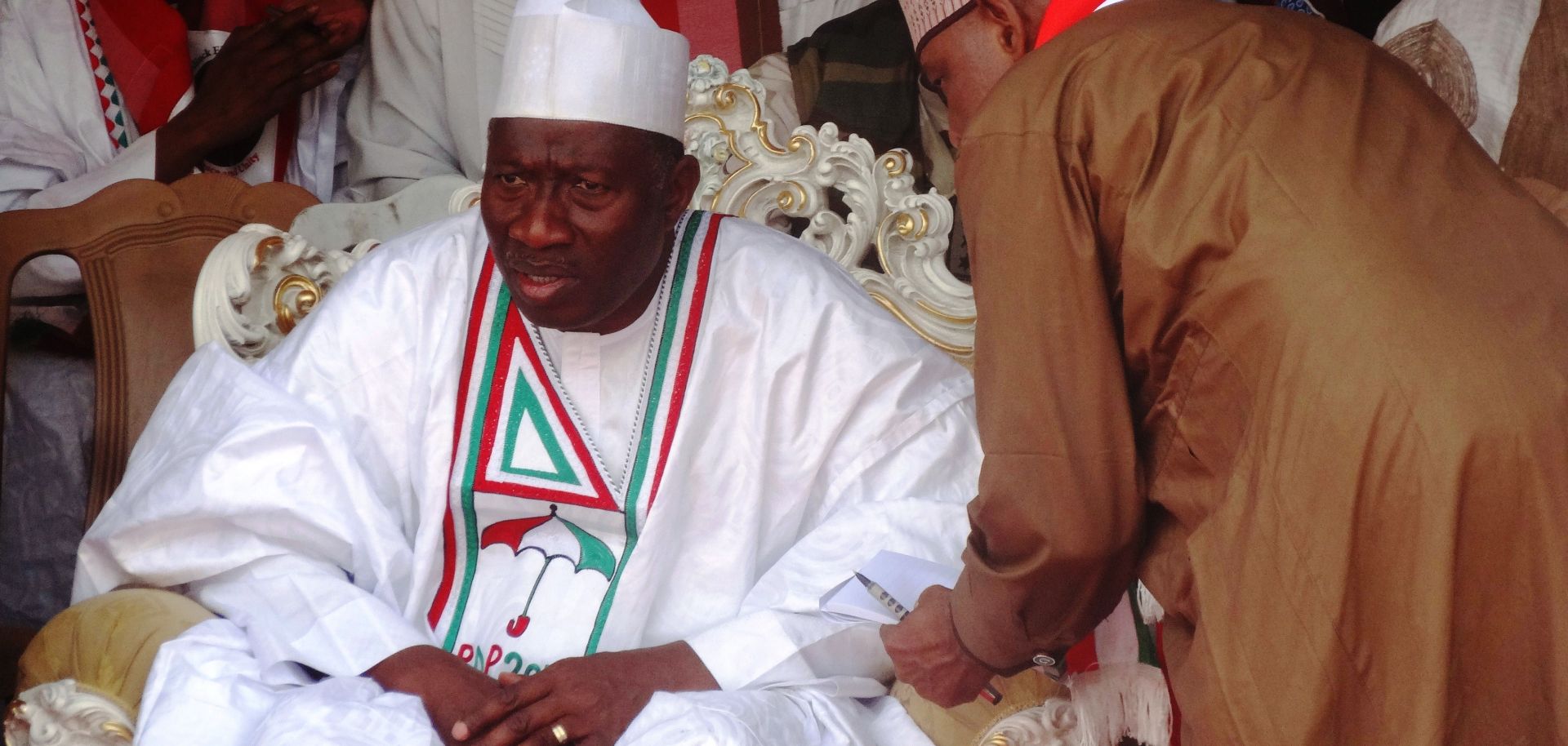
Much of Nigeria's history since its independence has been marked by instability, a result of power struggles among the country's competing interest groups, mainly from the military. Nigeria's democratic transition in 1999 meant to stabilize the country by instituting a model by which all interest groups would share power. Essentially, the model enabled leaders from different regions to rotate the country's top political positions, including the presidency, to ensure all regions of the country had limited control.
However, Nigerian President Goodluck Jonathan's recently announced re-election bid, if successful, could destabilize Nigeria by effectively reversing the country's recent efforts to democratize. Backlash against Jonathan has led to a split within the ruling party and is dividing the population, which is already grappling with region-specific security and economic concerns.
If Jonathan serves another term, he and his supporters, who are predominantly from his home region in the oil-rich Niger Delta, will have held the presidency for approximately 10 years, not counting the nearly three years Jonathan served as vice president. Furthermore, in the past, the ruling party consolidated its dominance by spreading candidates from across Nigeria in top government positions. Now that there are two strong parties, they will have to compete with one another for regional votes — a situation that could create regional divisions over the long term.
Regardless of who wins the presidency in February, the country will continue to face economic and security challenges. However, if Jonathan is re-elected, it could prove disruptive to the democratic tradition and to the power-sharing initiatives that emerged from Nigerian politics over the past 15 years.



